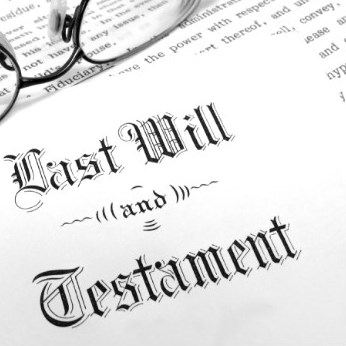
The executor (female: executrix) is the person appointed in the will of a decedent, to administer the decedent’s estate. The Executors’ main duty is to administer the estate of the decedent, according to the terms of the will unless otherwise directed or permitted by the court.
The executor must be eighteen years older and have no prior felony convictions. Executors are usually family members or friends, accountants or lawyers. The duties of the executor start at the time of death and finish when the last state and federal taxes are paid and the estate is closed or otherwise fully disposed.
Executor responsibilities include:
-
Location and valuation of assets in the decedent’s estate
-
Preparation of an inventory of the estate’s assets
-
Payment of estate liens and debts
-
Paying administration expenses
-
Paying taxes owed by the decedent or by the estate (including tax returns)
-
Final distribution of assets to the beneficiaries after all debts, expenses, and taxes are paid.
Final distribution of the assets will be distributed according to the will. If there was no will, distribution will go according to the law of interstate succession.
An executor has legal fiduciary responsibilities and must act with utmost honesty, impartiality, and scrupulousness on behalf of the deceased and the estate’s beneficiaries. Rational decisions must be made; and the executor must overcome emotion caused by loss and adhere to the terms of the will.
Some questions the potential executor should ask before accepting the position?
-
What type of property and debts does the deceased own or owe? What type of property is it? Real estate, personal, mineral, oil or gas rights or other types of property?
-
Where is the property located? Is all the property in Texas or are some estate assets in other states?
-
Did the deceased own a business that will have to be assumed by the executor to continue operations until the probate is settled and where is the business located? The executor will need to know about all aspects of the business operations and obligations.
-
Do you have an accountant, attorney or other professional advisor who can assist you in handling the probate transition in a timely and expedient fashion?
-
What are the deceased debts? Is the estate solvent or insolvent? Are there any outstanding lawsuits or potential problems? Any other property disputes?
-
Were children born to or adopted by Decedent after the will was made?
-
Any potential family disputes?
-
Where is the will located? If the maker of the will is living, should any changes be made to the will before the person dies? If the executor decides to accept the position, does the will need to be changed on acceptance to appoint the executor of choice.
-
What are the basics of administering the executor’s position and duties while administrating of the estate of the deceased?
-
Collection and management of the assets
-
Paying all taxes, debts, and expenses of the estate
-
Distribution of remaining assets to the beneficiaries of the estate in strict accordance with the will terms.
The executor’s position can be very complicated and time consuming and you should have knowledge of all financial and legal aspects of probating an estate. An experienced employee, accountant or attorney can help you with this important task. If not sure, ask for help! You have a serious and legally accountable responsibility to the estate and its beneficiaries.